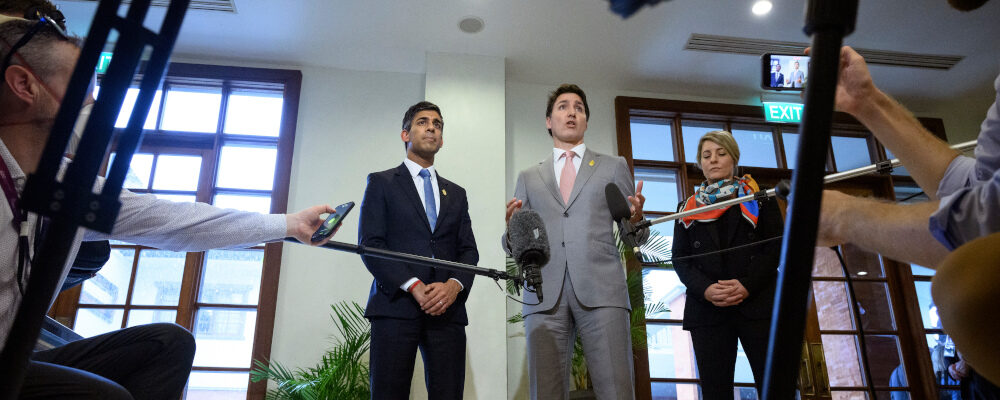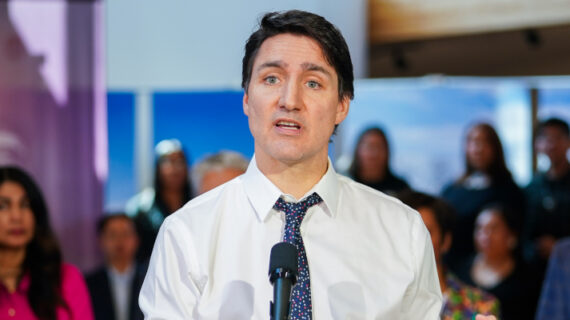The saintly editors here at The Hub have agreed to my request to produce one of my two monthly articles for the site as a monthly transatlantic diary. For those readers not familiar with the format, which is more common in British journalism, the diary is a grab bag of short items, sometimes on a common theme, but often not. In my case, what they have in common is that they are either too inconsequential to merit a full article or I can’t be bothered to come up with more than a knee-jerk reaction or a flip comment. This is January.
January
January is my birthday month, and not coincidentally the most depressing month of the year. Across most of Canada, it’s the month when the spark of hope provoked by an unblemished calendar is extinguished by the looming reality of four more months of winter (on the west coast, substitute rain for winter). Here in the U.K., the mood, as well as the weather, is not so just cold but damp. When I arrived for Hilary term, Oxford was floating. The meadows around the city are lakes, and anywhere you can see grass you can be sure it is just the deceptively solid surface of a marsh. We are like a temperate colony of Thesiger’s Marsh Arabs. Walking across Port Meadow in the dark to my birthday dinner, I soaked both shoes and one sock to mid-calf. Fortunately, the fire at The Perch did its job. I’ve no doubt the public health commissars who are determined to stamp out all traditional sources of joy have deemed wood-burning fires a menace; if so, I’m glad the good folk at The Perch are sticking with the old ways for now. The last thing one wants to see entering a pub with two wet feet is the pallid glow of an electric heater.
* * *
I mentioned that the mood in Ye Jolly Olde is dreary, but I should add that that is not an unusual state of affairs. With the exception of the uncharacteristically vulgar effulgence of “Cool Britannia” in the late-1990s, the British mood since it abandoned its imperial ambitions has been ironic resignation, occasionally descending into dignified gloom. Politically speaking, we’re in one of the gloomy periods. No one, not even I suspect most of their MP’s families, is even considering voting for the incumbent Conservatives, but neither does anyone, including most Labour supporters, seem particularly enthusiastic about Labour leader Keir Starmer, who has all the charisma of three-day-old rice pudding. His 20-point lead in the polls is testament to the fact that, as of now, the system offers disaffected voters no other choice.
* * *
After almost thirteen years of Conservative rule, the country is far less conservative in just about every way imaginable—culturally, socially, legally, religiously, fiscally. About the only good thing that can be said of the party’s tenure is that it corrected a fifty-year-old error by extricating Britain from political entanglement with the corrupt and undemocratic European Union. Otherwise, taxes are up, service is down, strikes are back, and the borders are open. It’s no wonder the Conservatives are facing a generational defeat in the next election. I almost feel sorry for Rishi Sunak, who is like a junior officer promoted to command of a garrison after it’s already been overrun. It’s not his fault the senior officers wasted all the ammunition on hunting parties before being relieved of command for incompetence, but he’s going to be the poor bugger facing the enemy’s spears at close quarters.
* * *
If things weren’t bad enough on the home front, it was recently reported that a “senior U.S. General” had bluntly warned Ben Wallace, the former U.K. minister of defence, that the U.K. military “is no longer regarded as a top-level fighting force.” It makes one wonder what the Americans must think about Canada’s military. I suspect the answer is that they don’t. Yes, the CAF performed impressively in the ill-conceived war in Afghanistan, but instead of building on that experience, consecutive governments have seen defence as a politically-painless source of budget savings. The idea that we might meet our NATO obligation of spending 2 percent of GDP on our military is, at this point, almost unimaginable.
* * *
Putting on my cynical hat, perhaps the chronic underfunding of the CAF is fine. What are we going to do with a bigger and more capable military anyway? Embroil ourselves in more West African civil wars? Read the government’s description of the pathetically undermanned Mali mission—ironically named Operation Presence (at least someone at DND has a sense of humour)—if you want a laugh. Replacing my cynical hat with my political hat, a new government will need to make the case for the Canadian military before it makes sense to increase spending. What is the CAF for? What, for that matter, is Canada for? Does anyone in Ottawa know? Does anyone in Ottawa care?

* * *
Speaking of Canada’s role in the world, I’ve had the nagging heretical thought for some time that it might not be the worst thing if the G7 started forgetting to invite us to its annual chinwag. By objective measure, we should have been replaced by India a few years ago. The shock of relegation might force Canada’s complacent leadership class to consider whether we have more to offer the world than smug lectures and occasional intemperate press releases from the Pearson Building. As a boy, I had an English teacher whose father was one of the last men offered an hereditary peerage. According to my teacher, his father had opted for a life peerage instead because he knew his son and thought it wouldn’t be good for him to inherit a title. There’s a lesson there. As long as we have a seat at the table, we don’t need to earn it. It doesn’t seem to have hurt Australia, South Korea, or Norway not to be in the G7. It may even have helped them. Maybe it would help Canada too.
* * *
Finally, on a lighter note, I see that a Frasier reboot is in the works, with only Kelsey Grammer returning from the original cast. Although Grammer, with his pitch-perfect Jack Benny eye-roles and sardonic ripostes, was outstanding as the centre around which the more colourful supporting characters revolved, I can’t see the new show being more than sad fan service for aging nostalgics, the TV version of those old bands that still tour without most of the original members. I hope I’m wrong, but if I had the choice, I’d rather see Hollywood make a final season of Boss, for which Grammer won a Golden Globe as a Daley-esque mayor of modern Chicago. The pulp drama was loads of fun but, alas, little-watched.
And so, on to February, which at least has the advantage of being shorter than January.




